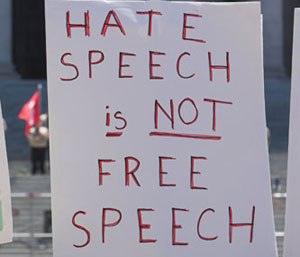Institute for the Research of Genocide Canada
Published: March 16, 2011
Source: Originally Published on March 10, 2011 in Edmonton Journal, Canadian daily newspaper. For background see: Smear Campaign Against the IRGC.
Re: “Denying genocide should not be called freedom of speech,” by Srdja Pavlovic, Letters, Feb. 28.
Prof. Srdja Pavlovic of the University of Alberta argued that Canada was within its rights and acted correctly in refusing admission to Srdja Trifkovic, a journalist and political activist. Trifkovic writes political commentary, principally for the magazine Chronicles, a polemical publication from an organization of the extreme right, in which he is also an editor. Among scholars Trifkovic is regarded, not as a colleague, but as a curiosity from the side.
After leaving professional journalism he spent much of the 1990s in political roles, principally involved with the parastate established by a group of extremist Serbs in Bosnia-Herzegovina. He was the representative of that parastate in London and the international spokesman (albeit “unofficial”) for Radovan Karadzic in the 1990s.
After the wars ended, Trifkovic continued to deny crimes it was his job to deny as international spokesman for Karadzic. His arguments are summarized in an article, The Hague Tribunal: Bad Justice, Worse Politics. He also published two books, The Sword of the Prophet and Defeating Jihad, arguing terrorism and violence are intrinsic to the Islamic religion.
As for the claims Trifkovic makes regarding crimes committed in Bosnia-Herzegovina, they have been disproven before international judicial bodies such as the International Criminal Tribunal for the former Yugoslavia (ICTY), which has found individuals responsible for genocide in Srebrenica, and the International Court of Justice, which found that genocide was committed.
Although Trifkovic often raises the fact that he testified in defence of one indictee at ICTY, Milomir Stakic, he tends not to mention that Stakic was convicted on five counts — and that the presiding judge, Wolfgang Schomburg, felt it necessary to distance the defendant from the extreme views advanced by his witness, Trifkovic.
Despite extreme views that would discredit most public speakers, Trifkovic has become a bit of a cause célèbre in some parts of the émigré community, partly because he is amusing and well-spoken and partly because he holds a doctorate.
What was meant to happen at the University of British Columbia and at the University of Alberta is this: student and diasporic organizations rented a room from the universities and advertised a public lecture associating the speaker’s name with a respected institution. This was meant to give Trifkovic personally and the views being promoted scholarly credibility they do not have.
Freedom of movement is a fundamental democratic value and should be restricted only for compelling reason. The Canadian government was right to exclude a participant in violations of human rights from entry to the country and to prevent this misuse of the authority of the university from taking place.
We support our colleague Pavlovic in defending the autonomy and authority of the university. We do not think denial and advocacy of crime is protected under legal guarantees of free speech.
Eric Gordy, University College London; Florian Bieber, University of Graz; Tomislav Longinovic, University of Wisconsin, Madison; Elvira Veselinovic, University of Cologne; Ulf Brunnbauer, University of Regensburg; Davor Beganovic, University of Konstanz; Bojan Aleksov, University College London; Ted Blodgett, University of Alberta; Tamara Gordy, Bainbridge Graduate Institute; Wendy Bracewell, University College London; Nebojsa Petrovic, University of Belgrade; Armanda Kodra Hysa, Institute for Cultural Anthropology, Tirana; Emilian Kavalski, University of Western Sydney; V.P. Gagnon, Ithaca College; Svetlana Rakocevic, University College London; Andrew Gilbert, University of Toronto; Dejan Djokic, Goldsmiths , University of London; Catherine Baker, University of Southampton; Jasna Dragovic-Soso, Goldsmiths, University of London; Jessica Greenberg, Northwestern University; Nicole Lindstrom, University of York; Ja mes Lyon , independent scholar; Christopher Lamont, University of Ulster; Andy Knight, University of Alberta

